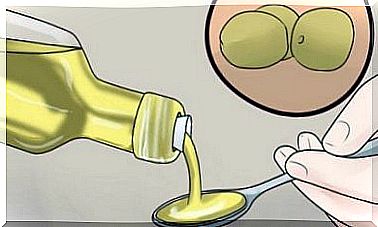Do Light Products Make You Fat?
Light products usually attract the attention of those people who are struggling with obesity. But are they really effective and healthy?

Light products usually attract the attention of those who are struggling with obesity. But are they really effective and healthy?
Body weight has become a common health problem in many countries that characterizes this century. Obesity is a risk factor that can lead to other diseases. Therefore a change in diet in combination with other preventive measures is essential.
The industry has responded to the weight problems with light products. These promise to contain fewer calories than “normal” products. But that does not automatically mean that they are better. Do you want to know why? Then read on, we will explain everything you should know about light products.
Light products contain fewer calories
One advantage of the light products is that they contain fewer calories. This is achieved by using less fat in the production. However, other ingredients are used to make these products equally attractive for consumers. They also usually contain the same amount of simple sugars or even more.
Eliminating fat from foods (unless the fats are trans fats) is not necessarily a good idea. Because it contains fat-soluble vitamins, for example vitamin D. The body is deprived of very important micronutrients.
Vitamin D deficiency is endemic, so you should not reduce your intake of this vitamin as this could lead to health problems in the medium and long term. Many people are deficient in vitamin D, which increases the risk of other diseases, such as cardiovascular and inflammatory diseases. You can read more about it, for example, in an article published in the Annual Review of Medicine .

Light products can tempt you to eat more
Although these products contain fewer calories than the corresponding “normal” products, they also often encourage people to eat more of them. In the end, you will be consuming the same or more calories than with the classic version.
At the same time, you eat more simple sugars and often more additives. As you can see, you are doing your health bad in the medium and long term.
Tips for a healthy diet
Instead of choosing light products, you should opt for fresh foods. Reduce the consumption of manufactured foods, as this will also reduce your intake of calories, sugar and additives.
At the same time, you reduce the risk of complex diseases such as diabetes, obesity and other metabolic disorders that arise from diet.
Don’t forget to cook the food gently and use only a small amount of high-quality oil. This also allows you to avoid pollutants such as acrylamide, which are created when oil is heated intensively.
Try to include healthy oils, such as those found in oily fish, dried fruits, and vegetable oils. By reducing animal fat (although the subject is still controversial on a scientific level) and trans fat, you can improve your health at the same time.

Be careful with light products
Although light products contain fewer calories, you should not be tempted by them and in any case carefully analyze the ingredients. The calorie reduction is often due to the fact that these products contain less fat. For this, however, more simple sugars are usually added.
The tendency to eat more of it must not be forgotten either. Because if you think you don’t have to worry about the calories, grab a second serving quickly. Better to change your diet and include lots of fresh foods in your daily eating plan.
A healthy lifestyle combines a varied, balanced diet with regular exercise. Of course you can use a light product every now and then, but fresh food is always preferable to industrially produced!









